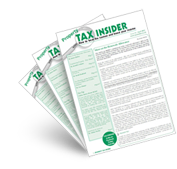Should the property be sold or put into trust?
Question
My father-in-law has his house on the market with one offer that he refused. The house was valued at £870,000, and he is wondering about selling to his daughter for £435,000. However, he is not sure if stamp duty land tax would be paid on the £435,000 or the offer that was refused of £820,000. The only reason he is selling to his daughter at a reduced rate is to keep it in the family. Should he sell to his daughter, or should the house be put into trust?
Arthur Weller replies: The rate of stamp duty land tax (SDLT) is almost always based on the amount that the buyer pays the seller, and not on the market value of the property. So your father-in-law would pay 3% SDLT on £435,000. It is probably not such a good idea to put the house into trust, because this could (depending on the type of trust) trigger lifetime inheritance tax at 20% on £545,000 (the difference between £870,000 and the nil rate band £325,000), and can also have other disadvantages. |

To enrol in the 7 tax saving strategies email course complete the form below. The first module will be emailed to you immediately.

 UK Property Tax Q&A
UK Property Tax Q&A
